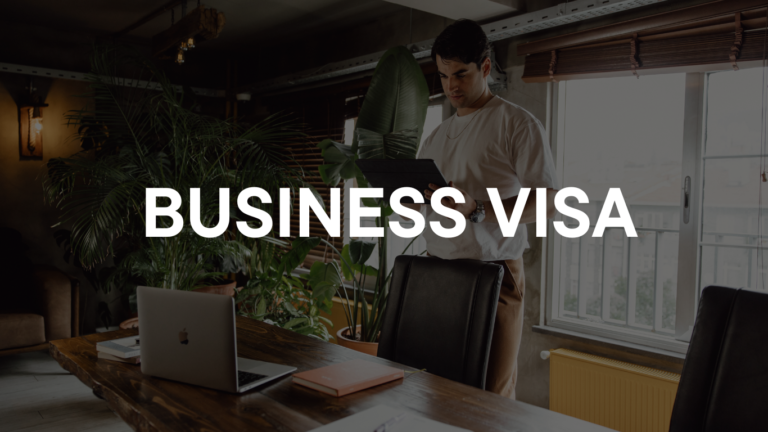
A Comprehensive Guide to the USA, UK, Canada, Australia, New Zealand, Ireland, and Germany
Are you planning to expand your business overseas or attend international business meetings? A business visa is your gateway to accessing new markets and forging valuable connections abroad. But with varying requirements and application processes across countries, navigating the business visa landscape can be daunting. Let’s explore the intricacies of business visas for seven major destinations: the USA, UK, Canada, Australia, New Zealand, Ireland, and Germany.
USA Business Visas
H1-B Visa
Eligibility: The H1-B visa is designed for foreign workers in specialty occupations requiring theoretical or technical expertise. Typical beneficiaries include IT professionals, engineers, and scientists.
Application Process: Employers must first file a Labor Condition Application (LCA) with the Department of Labor, followed by filing Form I-129 with U.S. Citizenship and Immigration Services (USCIS). Upon approval, the applicant can attend a visa interview at a U.S. consulate or embassy.
L-1 Visa
Eligibility: The L-1 visa is for intra-company transferees who work in managerial positions or have specialized knowledge. It’s ideal for multinational companies transferring employees to their U.S. offices.
Application Process: The employer files Form I-129 on behalf of the employee. After approval, the employee attends a visa interview at a U.S. consulate or embassy.
B-1 Visa
Eligibility: The B-1 visa is for individuals visiting the USA for business-related activities, such as attending conferences, negotiating contracts, or conducting market research.
Application Process: Applicants must complete the DS-160 form online, pay the visa fee, and schedule an interview at a U.S. consulate or embassy. Supporting documents, such as an invitation letter from a U.S. business, are crucial.
UK Business Visas
Tier 1 (Investor) Visa
Eligibility: Investors willing to invest at least £2 million in the UK are eligible for this visa. It’s aimed at high-net-worth individuals seeking to make substantial financial investments.
Application Process: Applicants must provide evidence of their funds, complete an online application, and attend a biometric appointment. Approval typically follows an interview.
Tier 2 (General) Visa
Eligibility: The Tier 2 (General) visa is for skilled workers with a job offer from a UK employer holding a valid sponsorship license.
Application Process: The employer issues a Certificate of Sponsorship (CoS). The applicant then applies online, pays the healthcare surcharge, and attends a biometric appointment.
Innovator Visa
Eligibility: This visa targets entrepreneurs with innovative business ideas endorsed by an approved body. It requires a minimum investment of £50,000.
Application Process: Applicants need to secure endorsement, complete an online application, and attend a biometric appointment. The endorsement body plays a critical role in the approval process.
Canada Business Visas
Start-Up Visa Program
Eligibility: Entrepreneurs with innovative business ideas supported by designated organizations in Canada can apply. They must meet language proficiency requirements and have sufficient settlement funds.
Application Process: Applicants must secure a letter of support from a designated organization, submit their application online or via mail, and attend an interview.
Temporary Resident Visa (TRV)
Eligibility: The TRV is for individuals visiting Canada for business activities such as meetings, conferences, or site visits.
Application Process: Applicants need to complete the IMM 5257 form, provide supporting documents (e.g., invitation letters), and attend a biometric appointment. Approval usually follows a thorough review.
Global Talent Stream
Eligibility: This program is for employers looking to hire highly-skilled foreign workers. It’s part of the Temporary Foreign Worker Program (TFWP).
Application Process: Employers must submit a Labour Market Benefits Plan (LMBP), obtain a positive Labour Market Impact Assessment (LMIA), and the employee applies for a work permit.
Australia Business Visas
Business Innovation and Investment (Provisional) Visa (Subclass 188)
Eligibility: This visa targets business owners and investors. It has several streams, including Business Innovation, Investor, and Significant Investor.
Application Process: Applicants must submit an Expression of Interest (EOI) through SkillSelect, receive a nomination from an Australian state or territory government, and then apply for the visa.
Business Talent (Permanent) Visa (Subclass 132)
Eligibility: High-caliber business owners or part-owners who are nominated by an Australian state or territory government can apply for this permanent visa.
Application Process: Applicants submit an EOI, receive a nomination, and then apply online. Supporting documents include business and financial evidence.
Temporary Skill Shortage (TSS) Visa (Subclass 482)
Eligibility: Skilled workers sponsored by an approved business can apply. It allows employers to address labor shortages by bringing in skilled workers from abroad.
Application Process: Employers must lodge a nomination application. Once approved, the employee applies for the visa online and provides supporting documentation.
New Zealand Business Visas
Entrepreneur Work Visa
Eligibility: This visa is for experienced business people who want to establish or purchase a business in New Zealand.
Application Process: Applicants need to submit a detailed business plan, demonstrate relevant experience, and provide evidence of sufficient capital. The application is made online.
Investor 1 (Resident) Visa
Eligibility: High-net-worth individuals willing to invest NZD 10 million in New Zealand over three years are eligible.
Application Process: Applicants submit an EOI, receive an invitation to apply, and provide detailed evidence of their investment funds.
Global Impact Visa (GIVs)
Eligibility: This visa targets innovative entrepreneurs and investors with the potential to create positive global impact.
Application Process: Applicants must be accepted into the Edmund Hillary Fellowship (EHF) program, then apply for the visa through Immigration New Zealand.
Ireland Business Visas
Start-Up Entrepreneur Programme (STEP)
Eligibility: Entrepreneurs with innovative business proposals and funding of at least €50,000 can apply.
Application Process: Applicants need to submit a detailed business proposal, financial evidence, and a completed application form to the Irish Naturalisation and Immigration Service (INIS).
Immigrant Investor Programme (IIP)
Eligibility: Investors with a minimum of €1 million to invest in an Irish enterprise can apply.
Application Process: Applicants submit a detailed investment proposal, financial evidence, and an application form to INIS. Approval follows an extensive review process.
Business Permission
Eligibility: Non-EEA nationals intending to start a business in Ireland must apply for Business Permission.
Application Process: Applicants submit a detailed business plan, proof of financial resources, and relevant documentation to INIS. Approval is contingent on meeting specific criteria.
Germany Business Visas
Self-Employment Visa
Eligibility: Entrepreneurs planning to establish a business in Germany or freelancers in certain professions can apply.
Application Process: Applicants need to submit a business plan, financial evidence, and proof of relevant experience. The application is made at the German embassy or consulate.
Freelancer Visa
Eligibility: Freelancers in specific professions, such as artists, writers, and teachers, can apply.
Application Process: Applicants need to submit a portfolio of their work, contracts or letters of intent from future clients, and financial evidence. The application is made at the German embassy or consulate.
Job Seeker Visa
Eligibility: Professionals with a recognized degree and sufficient funds to support their stay while seeking employment in Germany can apply.
Application Process: Applicants submit proof of their qualifications, financial evidence, and a detailed CV. The application is made at the German embassy or consulate.
Conclusion
Navigating the world of business visas can be complex, but understanding the specific requirements and processes for each country can make the journey smoother. Whether you’re an entrepreneur, an investor, or a skilled professional, there’s a business visa that fits your needs. By carefully preparing your application and meeting the eligibility criteria, you can unlock new opportunities and expand your business horizons in the USA, UK, Canada, Australia, New Zealand, Ireland, or Germany.
FAQs
What is the difference between a business visa and a work visa?
A business visa allows you to engage in business-related activities, such as meetings and conferences, without being employed in the host country. A work visa permits you to take up employment and earn a salary in the host country.
Can business visa holders bring their family members?
It depends on the country’s regulations. Some business visas allow dependents to accompany the visa holder, while others do not. Always check the specific visa guidelines.
How long does it take to get a business visa?
Processing times vary by country and visa type. It can range from a few weeks to several months. Check the respective country’s immigration website for detailed timelines.
Are there any restrictions on business activities for visa holders?
Yes, business visa holders are typically restricted to activities such as attending meetings, conferences, and negotiations. They cannot engage in full-time employment or earn a salary from a local employer.
What should I do if my business visa application is denied?
If your application is denied, you can usually appeal the decision or reapply, addressing the reasons for denial. It’s advisable to seek professional advice to improve your chances of approval.




